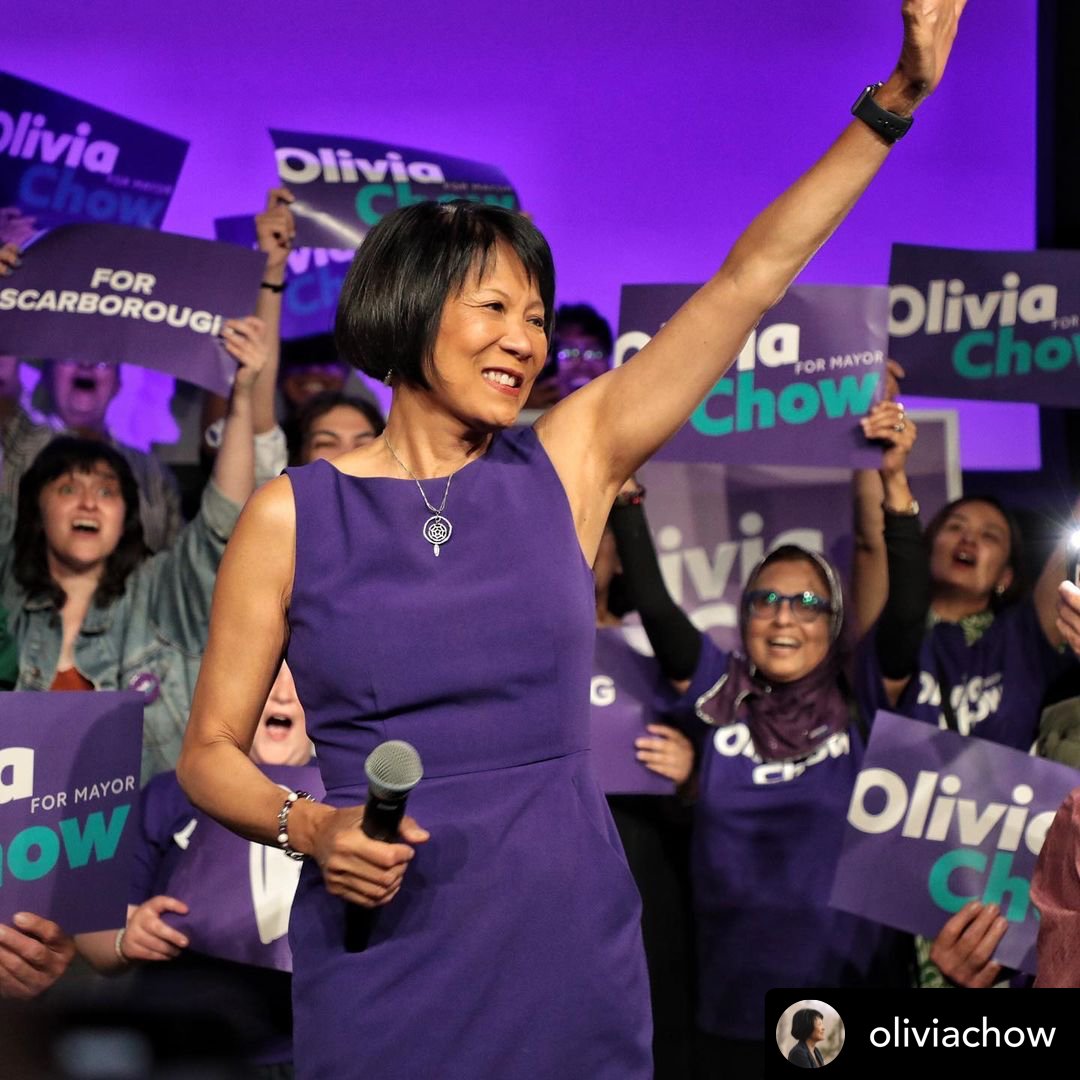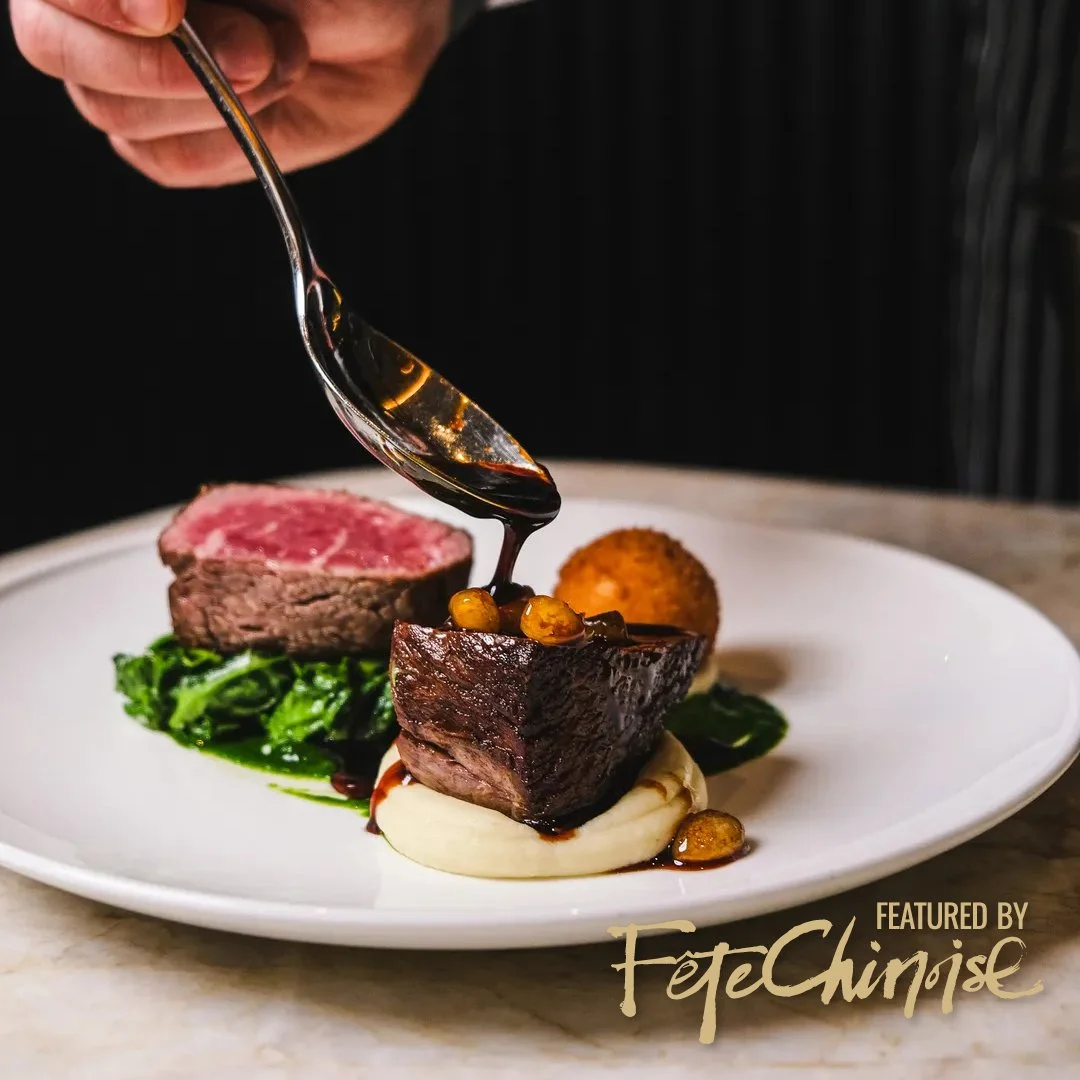Celebrating Olivia Chow's Victory: A Triumph for Asian Representation, Female Leadership and the Immigrant Narrative in Canada
Written by the Fete Chinoise editorial team
Image reposted from Olivia Chow INstagram
In a historic turn of events, Toronto has elected Olivia Chow as its mayor in the 2023 election. Since former Mayor John Tory was forced to step down due to his affair, the city has seen over a hundred candidates come forward vying for the position to lead the city. Chow ran against Tory back in 2014 and came in third. This time, Chow's victory not only marks a significant milestone for Asian representation in politics but also demonstrates the power and resilience of women leaders and immigrants like her who arrived when she was 13 in search for a brighter future with her family. She led the race from the moment she entered and it was a decisive win, despite a close finish line moment with her and runner up Ana Bilao (former Deputy Mayor of Toronto) who was also a strong female candidate. As we celebrate this momentous occasion, it is important to recognize the immense potential and positive impact that Chow's tenure as mayor holds for the city.
The election of Olivia Chow as Toronto's mayor is a groundbreaking achievement for Asian representation in Canadian politics. She is the first mayor of Chinese-Canadian descent and of a visible minority, and it’s the first time since Barbara Hall (the 61st mayor of Toronto from 1994 to 1997) that a female leader is in power to lead the city. With her victory, Chow becomes a symbol of hope and inspiration for the Asian community, demonstrating that diverse voices can ascend to positions of power and influence in Canada. By breaking barriers, Chow paves the way for greater representation and inclusivity in decision-making processes, fostering a more equitable society, which her and her late husband and former leader of the federal New Democratic Party Jack Layton firmly believed in. During her speech, she also began naming other colleagues who were in the heated race as her collaborators to get things done in office, showing her collaborative spirit that is consistent with her campaign.
Olivia Chow celebrates with supporters after being declared the winner in the race for mayor of Toronto at an election night rally on Monday. Image reposted from Olivia Chow INstagram.
For too long, Asian communities have been underrepresented in political leadership positions at every level of government in Canada, limiting the ability and reach to shape policies that directly affect them and other diaspora communities. Chow's triumph challenges this norm, encouraging other aspiring politicians from Asian and minority backgrounds to pursue their ambitions and contribute their unique perspectives to governance. Through her leadership, she can address the needs and concerns of Toronto's diverse population fostering a more inclusive and representative political landscape. For many immigrant children and families who come to Canada with hope for more, and what Chow herself has been quoted, “second chances,” her story as an immigrant from Hong Kong certainly resounds with many people who hope to find a meaningful career and to make a significant positive impact in their new home. She’s served in multiple capacities before, including being a federal MP, and her dedication to serving people is a rare and remarkable story. Even those who may come from a similar heritage who may have previously been on different sides of political perspectives feel a sense of pride in seeing her take the reigns of leadership as a hard-working Canadian who arrived with little, and helped her family to make ends meet while growing up as a teenager in Toronto.
Image reposted from Olivia Chow INstagram.
Olivia Chow's election victory is a testament to the power and potential of women leaders at large. Her ascent to the mayoral role in such a major city sends a strong message that gender should never be a barrier to success and influence in public life. By electing Chow, Torontonians have not only recognized her exceptional qualities and capabilities but also shattered the glass ceiling that has limited women's participation in political leadership at the highest levels.
Chow's victory serves as an inspiration for countless women who have faced adversity and systemic barriers in their pursuit of leadership roles. It highlights the importance of nurturing and empowering female talent, recognizing the unique perspectives and skills they bring to the table. Chow had shared in some recent interviews that in this race, her approach was completely different from before, where she could be her compassionate self, and not worry about being too polished. She spoke from the heart and spoke passionately about issues big and small which plagued the city, and it made her relatable and reachable to many citizens who are going through some tougher times. From the battle to take back Ontario Place, to affordable housing, the transit system and safety to bringing people together again, she ran a strong campaign which spoke to many minority groups and diverse groups of individuals. With Chow at the helm, Toronto has a remarkable opportunity to showcase the transformative impact of women's leadership, fostering a more inclusive and compassionate city in a way that contrasts the male dominance in both municipal and provincial politics.
Image reposted from Olivia Chow INstagram.
As we congratulate Olivia Chow on her historic victory, we are filled with hope and optimism for the future of Toronto. Chow's dedication, experience, and deep understanding of the city's needs make her an ideal choice to lead Toronto into a prosperous and inclusive era.
We believe that Chow's leadership will prioritize the well-being of all Torontonians, placing particular emphasis on addressing the diverse needs of marginalized communities. Her commitment to affordable housing, accessible healthcare, and sustainable development promises to create a city that thrives on inclusivity, compassion, and progress.
















The number one young female sushi master to watch, in Japan - and one of a perilously few in an industry that remains obstinately male-dominated - the 36-year-old (who is also a trained sommelier!) was in Canada for the first time. A two-day whirl at the oh-so-wonderful Sushi Yugen on York Street.